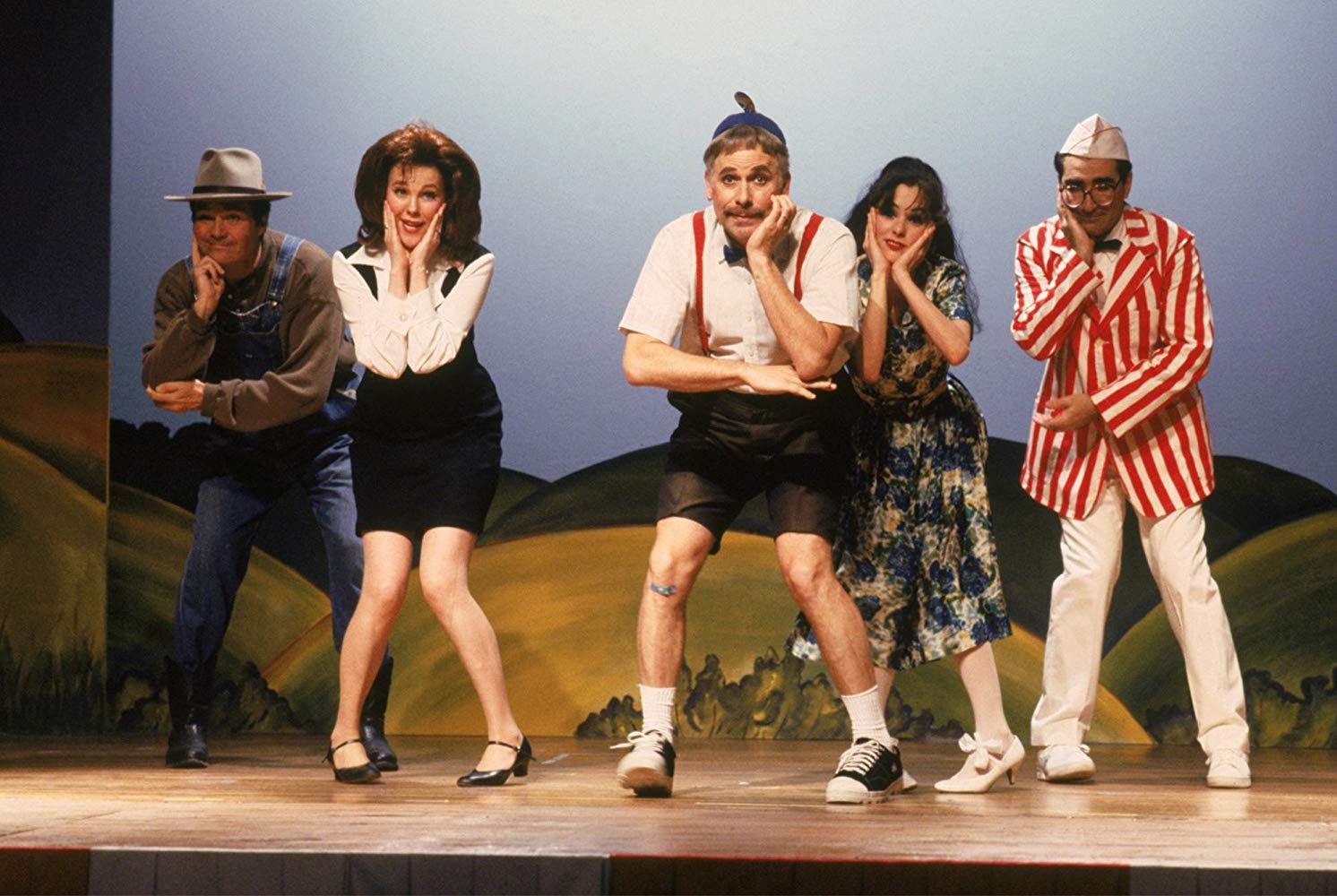by Chris Feil
Music is essential to the Christopher Guest universe, from This is Spinal Tap to the Oscar-nommed A Mighty Wind to “God Loves a Terrier”. Waiting for Guffman, however, carries such a hefty cult comedy weight with it that it hardly ever gets discussed for the musical oddity that it is. On top of the film’s improvisational comedic genius, Guest also creates it as a subversion of the classic American “let’s put on a show” midwestern musical and of the consuming culture that is musical theatre obsession. Both are presented as lies of the American dream, both to comedic extremes and tragic disappointment, as the film charts the exploits of clueless dreamers in the small town of Blaine.

The film’s first musical half belongs to its audition sequence, filled with songs from the public domain that provide their own American cultural history while revealing the archetypes of every theatre community. The ringer is Eugene Levy’s Dr. Pearl, wooing the director and creator Corky St. Clair (played by Guest) with a medley of ballads and minstrel songs. His is a dimwitted affability of a first attempt, the blitheness of his attempting musical theatre in a limited skill set as casual as a century of racism glossed over in minstrel tunes. Charm, or wanting to be charmed, clouds judgment.
Then we have Catherine O’Hara and Fred Weller’s Sheila and Ron Albertson as the local stars serving midcentury sanitized romance with “Midnight at the Oasis”. Their take is a literal coffee commercial, imagining themselves as Doris Day and Rock Hudson by way of Burt Bacharach duo. But they don’t seem to get what is so campy or fun about such a number. They’re supposed to be the powerhouses, but their shadow is longer than the distance between their talent and the other locals. If you’ve ever stepped foot on a stage, you probably know the Albertsons and probably resent them.
And then there’s the ingenue, Parker Posey’s Libby Mae Brown. Hers is a silly song as well, “Teacher’s Pet”, a sexual wink that Libby Mae performs to its “gee shucks” hilt. She’s the most authentically winning, and it’s because she beams with an authentic passion for the art form without self-awareness. There has to be one of these performances that actually convinces us, right? (Her deleted monologue also rules.) Hers is the heart that is most pure and will be most thoroughly smashed to bits.
The film’s other musical half is the show itself, Corky’s “Red, White, and Blaine” musical homage to their uninteresting hamlet composed by Guest, Michael McKean, and Harry Shearer. Many of the songs were left on the cutting room floor, but Corky’s borrowing of the most cliche musical theatre traditions still paints a clear picture of dreams outsized to actual talent, local myth outsized to its actual significance. We laugh because the earnest investment in small town history is as bleak as the town itself. But we’re also watching these performers en route to collapse, convincing themselves that Broadway is calling. The genius of Guest, sometimes funny and sometimes sad, is that he recognizes that as a lie of the musical theatre genre itself. Underneath “Red, White, and Blaine”’s songs about stool factories, alien arrivals, and farm life is the spirit of the American dream and its inherent lie.
All Soundtracking installments can be found here!